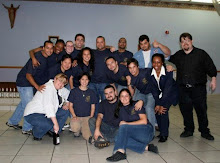Answer the following questions:
1. How does faith relate to revelation? What did the most ancient Christians think faith was?
2. What caused Christian understanding of faith to develop?
3. What is the epiphanic model of revelation?
4. Who were the “Fathers of the Church” and what did they think about faith?
5. What did St. Justin Martyr do for understanding of faith? What is faith according to St. Justin? What is a believer according to St. Justin?
6. What concerning faith was St. Irenæus of Lyon interested? What is a believer according to St. Irenæus?
7. What was faith according to St. Clement of Alexandria?
8. What is meant by “gnosis” and “Gnosticism”? What influence did Gnosticism have over our understanding of faith?
9. What is faith according to St. Augustine of Hippo?
10. What is the only motive or foundation for faith?
11. How does faith and human freedom relate?
12. Describe Semi-pelagianism.
13. Is there any human cooperation involved in faith?
14. What is meant by “nonhistorical orthodoxy” and its approach to Sacred Scripture and the documents from Church teaching?
15. Describe the Second Council of Orange and what happened there.
16. What is the extremely important, yet rarely known teaching of Augustine and the Council of Orange? What ramifications does it have for fundamentalist Catholic and other 20th and 21st century Christian apologists?
17. Describe faith in the Middle Ages. What is the doctrinal-theoretical model?
18. What did St. Thomas Aquinas have to say about faith? Is faith only about the intellect?
19. What is the source of faith? What is its goal?
20. What was faith for Martin Luther?
21. What was the Council of Trent? Describe it. What was it in response to? What did Trent say about faith? What does faith have to do with justification? What is justification?
22. Explain the various positions about revelation and its possibility held by “modernity.”
23. Define rationalism, fideism, and traditionalism. How did these views help shape the First Vatican Council? What did Vatican I think about faith? How did Vatican I broaden or widen our understanding of faith?
24. What is the communicative-theoretical model of revelation and how did it arise?
25. What two new aspects about faith did the Second Vatican Council emphasize?
